Norway Northern Lights with International Tour Packages
- Jun 26, 2024



International tour packages can take you to amazing places and help you learn about different cultures. But to have the best experience, you need to plan carefully. In this guide, we will show you how to choose the right tour package, understand the pros and cons of traveling abroad, and plan your trip for maximum enjoyment. Let's begin our journey to explore the world and have a great time!
A tour package is a combination of different travel products and services that are offered as one product. Tour packages can include transportation, accommodation, meals, activities, attractions, guides, and more. Cheap and best tour packages can make your travel planning easier, save you money, and provide you with a hassle-free experience.

There are many factors to consider when choosing a tour package, such as your budget, destination, preferences, and needs. Here are some tips to help you find your ideal tour package:
Select the destinations, activities, and sights you wish to see. Are you thinking about a certain nation or area? Do you want to explore the culture, history, nature, or adventure of a place? Do you want to visit multiple destinations or focus on one area? These questions will help you narrow down your options and find tour packages that suit your interests.
Compare different tour operators and their offerings. Tour operators are the companies that create and sell tour packages. They vary in their quality, reputation, specialization, and customer service. You can research online reviews, ratings, testimonials, and feedback from previous customers to find out more about them. You can also check their websites, brochures, and social media to see their itineraries, prices, inclusions, exclusions, and terms and conditions.
Choose a tour package that matches your budget and style. Tour packages can range from budget to luxury, depending on the level of comfort, convenience, and exclusivity they provide. You can compare the prices and value of different tour packages and see what they include and exclude. For example, some tour packages may include flights, hotels, meals, and entrance fees, while others may only cover the basics and require you to pay extra for optional activities, tips, and taxes. You can also choose a tour package that fits your travel style, such as solo, group, family, couple, or customized.
Check the availability and flexibility of the tour package. Tour packages may have limited availability and fixed departure dates, so you need to book early and plan ahead. You can also check the cancellation and refund policies of the tour operator and see if they offer any flexibility or insurance in case of unforeseen circumstances. You can also look for best holiday packages that allow you to customize or modify your itinerary, such as adding or removing destinations, activities, or days.
Read the fine print and ask questions. Before you book a tour package, make sure you understand and agree with all the details and conditions of the contract. You can read the fine print and ask questions to the tour operator or agent if you have any doubts or concerns. You can also ask for references or testimonials from previous customers to verify the quality and reliability of the tour package. You can also check if the tour operator is licensed, accredited, and insured.
Traveling abroad is a great way to experience different cultures, learn new things, and have fun. However, it also comes with some challenges that you should be aware of before you go. Here are some of the benefits and challenges of traveling abroad:
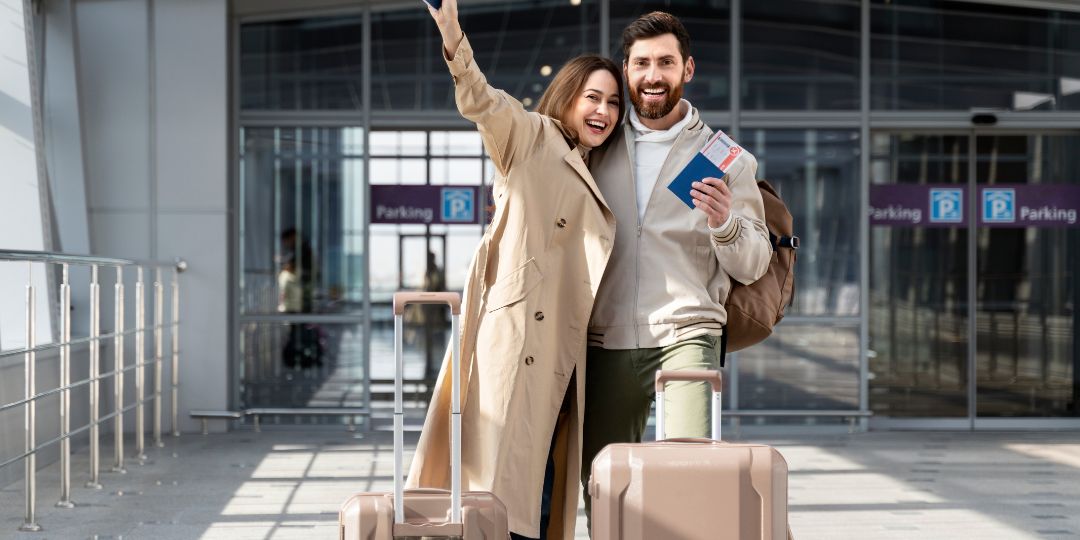
You meet incredible people. Traveling abroad allows you to interact with people from different backgrounds, perspectives, and lifestyles. You can make new friends, learn from their stories, and share your own. You might even find your soulmate along the way.
You explore somewhere new. Traveling abroad gives you the opportunity to see places that you have only read about or seen on TV. You can witness the beauty of nature, the history of civilizations, and the wonders of the world. You can also try new activities, foods, and customs that you might not have at home.
You learn about yourself. Traveling abroad challenges you to adapt to new situations and environments. You might discover new skills, interests, or passions that you didn’t know you had. You might also face your fears, overcome your limitations, and grow as a person.
You create lasting memories. Traveling abroad is an unforgettable experience that you will cherish for the rest of your life. You will have stories to tell, photos to show, and souvenirs to keep. You will also have a deeper appreciation for the world and its diversity.
It can be expensive. Traveling abroad can cost a lot of money, depending on where you go, how long you stay, and what you do. You might have to save up for a long time, or look for ways to travel on a budget. You might also have to deal with currency exchange, taxes, and fees.
It can be time-consuming. Traveling abroad can take a lot of time, especially if you have to travel long distances, deal with visas, or plan your itinerary. You might have to sacrifice some of your work, school, or personal commitments, or arrange for someone to take care of them while you are away.
It can be challenging. Traveling abroad can expose you to some difficulties that you might not face at home, such as language barriers, culture shocks, health risks, or safety issues. You might have to deal with unfamiliar systems, laws, or customs, or cope with unexpected situations or problems.
Plan your international trip by selecting a destination, creating a budget, booking flights and accommodations, planning your itinerary with flexibility in mind, and packing thoughtfully for your journey.
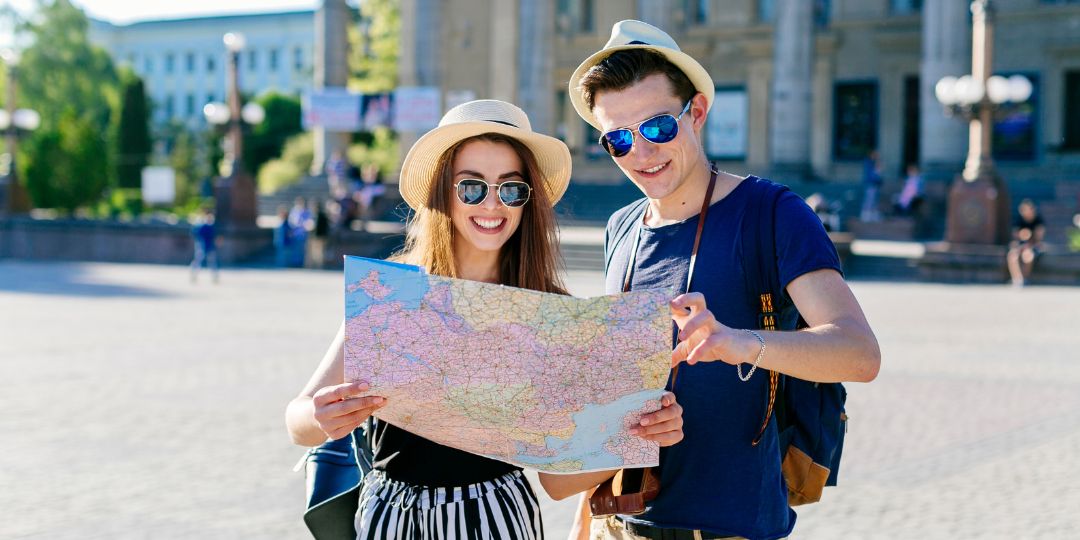
Pick a destination and the basics: Decide where you want to go, when you want to go, and for how long. You can use a map, a guidebook, or a travel magazine to get some inspiration. You can also get suggestions from your family, friends, and coworkers. You should also consider the visa requirements, the weather, the safety, and the cost of living of your destination.
Create a budget: Estimate how much money you will need for your trip, including the flight, the accommodation, the food, the transportation, the activities, and the souvenirs. You can use a spreadsheet, a calculator, or a notebook to track your expenses. You should also factor in some extra money for emergencies or unexpected costs. You can save money by booking your flight in advance, choosing a cheaper accommodation option, eating local food, using public transportation, and looking for free or discounted attractions.
Book your flight and accommodation: Once you have decided on your destination and your budget, you can book your flight and your accommodation. You can use a travel agent, a phone call, or an email to make your reservations. You should compare different options and look for the best value for your money. You should also confirm your booking details and print your confirmation emails or tickets. You should also check the baggage allowance, the cancellation policy, and the check-in and check-out times of your flight and accommodation.
Plan your itinerary: After you have booked your flight and accommodation, you can plan your itinerary. You can use a calendar, a planner, or a journal to organize your activities. You should research the attractions, the culture, and the customs of your destination. You should also check the opening hours, the entrance fees, and the location of the places you want to visit. You can also look for local events, festivals, or shows that might interest you. In your agenda, you should also allow for some wiggle space and improvisation.
Pack your bags: The last step before your trip is to pack your bags. You should make a packing list of the items you will need for your trip, such as clothes, shoes, toiletries, electronics, documents, and medications. You should also check the weather forecast, the dress code, and the cultural norms of your destination. You should pack light, smart, and comfortable. You should also label your bags with your name, address, and phone number. You should also carry some essential items in your carry-on bag, such as your passport, your visa, your flight ticket, your money, your credit card, your phone, your charger, and your medication.
There are a few things you need to pack and do before you go, depending on your destination and the purpose of your trip. Here are some general tips:
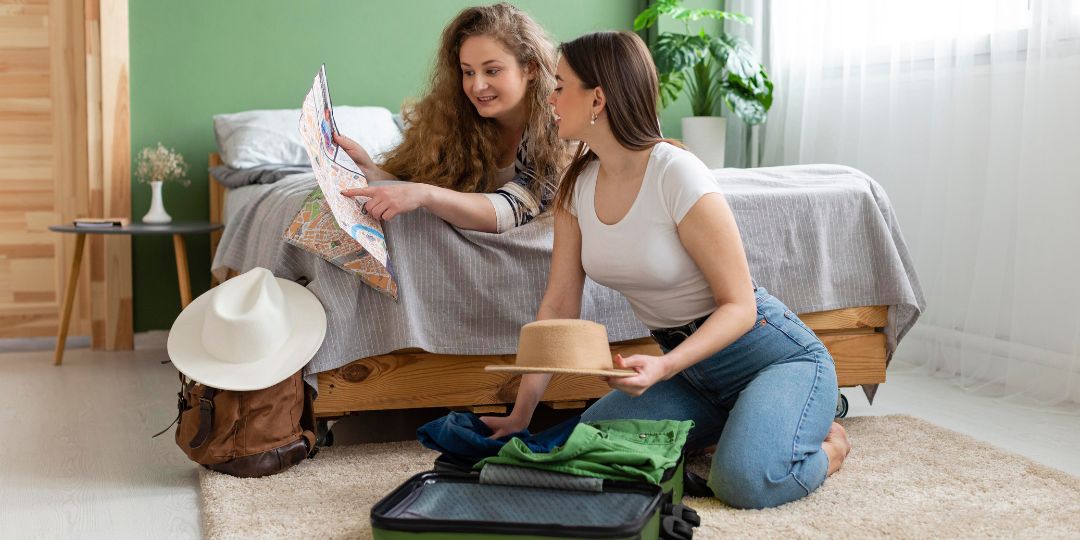
Pack your essential travel documents, such as your passport, visa, boarding passes, confirmation receipts, insurance policy, and emergency contacts. You can use a travel organizer or a ziplock bag to keep them together and safe.
When packing, consider the destination's weather prediction and make sure you have the right clothes and accessories. For example, if you’re going to a cold place, you might need a warm jacket, gloves, hat, and boots. If you’re going to a sunny place, you might need sunscreen, sunglasses, a hat, and a swimsuit.
Pack your personal items, such as toiletries, medications, electronics, chargers, adapters, and entertainment. You can use a packing list to make sure you don’t forget anything. You can also download a packing app to help you organize your items and save space in your suitcase.
Check the luggage allowance and restrictions for your airline and your destination. You might need to weigh your bags and measure your carry-on to avoid extra fees. You might also need to follow some rules about what you can and cannot bring, such as liquids, sharp objects, or food.
Check the currency and exchange rate for your destination and plan your budget accordingly. You might need to get some local cash before you leave or use an ATM at the airport. You might also need to inform your bank and credit card company about your travel plans to avoid fraud alerts or fees.
Check the health and safety situation for your destination and take precautions accordingly. You might need to get some vaccinations, prescriptions, or travel insurance before you go. You might also need to follow some local customs, laws, or etiquette to avoid trouble or offense.
Check the time difference and the best way to communicate with your family and friends back home. You might need to adjust your sleep schedule, set your phone to airplane mode, or use a messaging app or a calling card to stay in touch.
Share your itinerary and contact details with your travel agency, a family member, a friend, or a neighbor. providing them with copies of your essential documents, like your passport and visa, to be prepared for any potential emergencies during your trip.
Prepare your home for your absence, such as locking the doors and windows, unplugging the appliances, setting the thermostat, watering the plants, and taking out the trash. You can also ask someone to check on your home, collect your mail, or take care of your pets while you’re away.
Respecting and enjoying different cultures is a wonderful way to enrich your travel experience and learn more about the world. Here are some tips on how to do that:

Use adequate greetings and gestures. Body language is considered a silent language that can convey respect and understanding. Learn the common ways of greeting and expressing yourself in the culture you are visiting. For example, in some Asian countries, a slight bow gesture is customary, while in some European countries, a kiss on the cheek is appropriate.
Learn the basics to help you communicate. While you don’t have to be fluent in every language, learning a few basic phrases can show your interest and appreciation for the culture. You can also use gestures, pictures, or translation apps to help you communicate. Try to speak clearly, slowly, and politely.
Don’t be late. Punctuality is important in many cultures, and arriving late can be seen as rude or disrespectful. Make sure to plan ahead and be on time for your appointments, meetings, or casual get-togethers. If you are running late, apologize and explain the reason.
Participate in local customs and traditions. Every culture has its own unique customs and traditions that are ingrained in its history and identity. Try to learn about them and join in if you are invited. For example, you can try the local cuisine, wear the traditional clothing, or celebrate the festivals. Be respectful and curious, and avoid judging or criticizing.
Ask questions and listen. One of the best ways to respect and enjoy different cultures is to ask questions and listen to the answers. You can learn a lot from the people who live in the culture, and they will appreciate your interest and attention. Be open-minded and respectful, and avoid making assumptions or stereotypes.
Traveling internationally can be an exciting and rewarding experience, but it also comes with some risks and emergencies that you should be aware of and prepared for. Here are some tips on how to avoid and handle travel risks and emergencies:
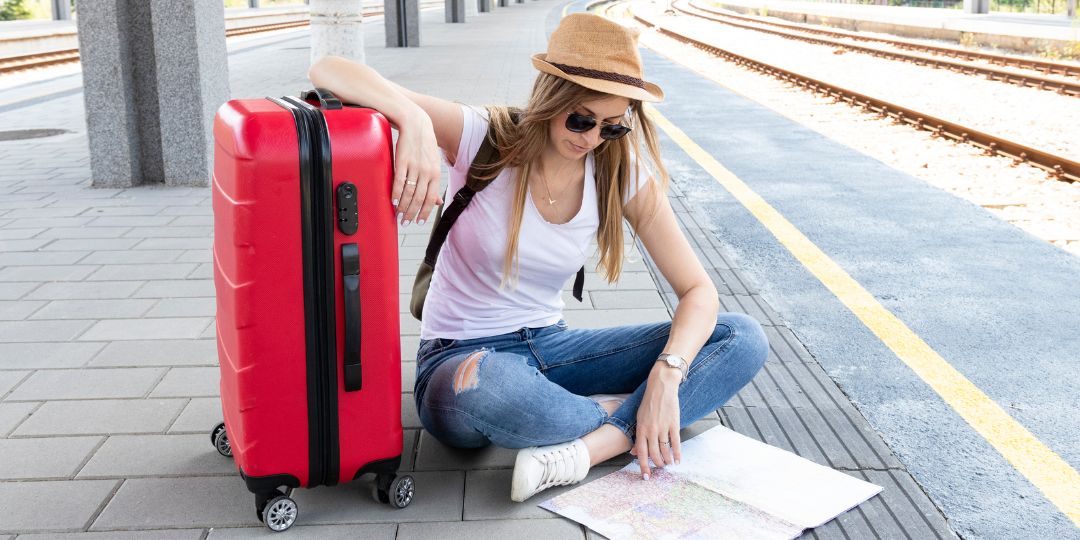
Before you travel, do some research on your destination and the potential hazards you may encounter there. You can use Bing to search for the latest travel advisories, health information, weather forecasts, and cultural norms for your destination. You can also consult your doctor or a travel clinic to get any necessary vaccinations, medications, or advice for your trip.
Pack a travel kit with essential items such as your passport, visa, travel insurance, emergency contacts, medications, first aid supplies, sunscreen, insect repellent, and water purification tablets. You can also bring some toiletries, snacks, and entertainment items to make your trip more comfortable.
Be aware of your surroundings and avoid risky situations such as traveling alone at night, wandering into unfamiliar areas, or accepting rides or drinks from strangers. If you feel unsafe or threatened, seek help from the local authorities, your embassy, or a trusted person.
Follow the local laws and customs and respect the culture and people of your destination. Learn some basic phrases and gestures to communicate and express yourself. Avoid any actions or topics that may be considered offensive or illegal, such as drugs, alcohol, gambling, politics, or religion.
In case of an emergency, such as a natural disaster, a terrorist attack, a civil unrest, or a health crisis, stay calm and follow the instructions of the local authorities and your travel provider. Contact your family and friends to let them know you are safe and update them on your situation. You can also use Bing to get the latest news and information on the emergency and how to cope with it.
To have fun and learn from your travel experiences, prepare by researching your destination's culture and customs. Stay flexible and open-minded, embracing unexpected situations and trying new things. Connect with locals and fellow travelers for cultural insights and new friendships, and document your journey through photos, journals, or blogs to cherish and share your memories.
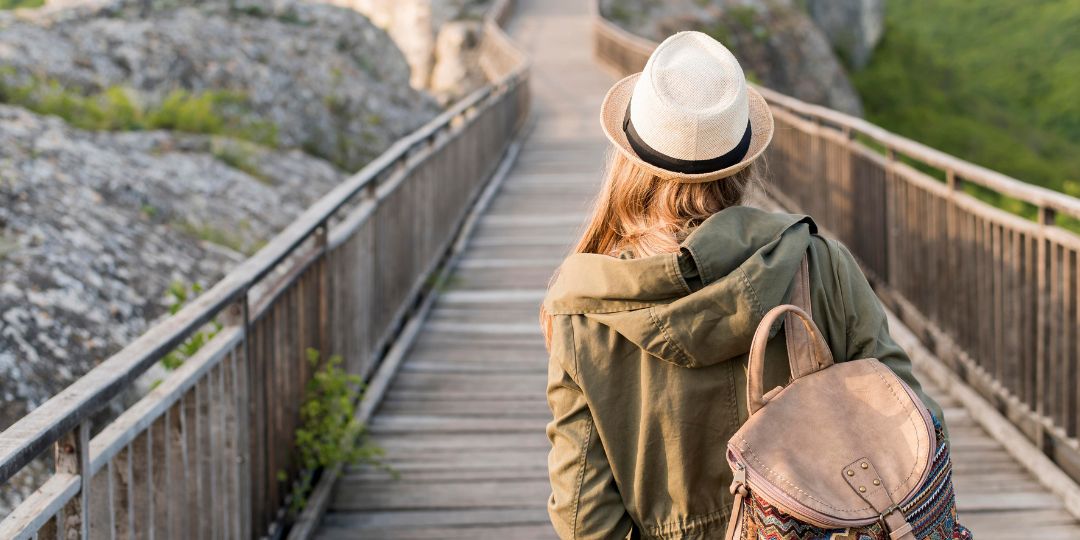
Make advance plans and investigate the place you're going. Learn about the culture, the language, the customs, the currency, the weather, and the attractions of the place you are visiting. This will help you avoid culture shock, communicate better, respect the local norms, budget wisely, pack appropriately, and enjoy the sights.
Be flexible and open-minded. Sometimes things don’t go as planned, such as flight delays, bad weather, or unexpected events. Instead of getting frustrated or angry, try to adapt and make the best of the situation. You might discover something new or have a memorable adventure. Also, be willing to try new things, such as food, activities, or experiences, that are different from what you are used to. You might find something that you love or learn something that you didn’t know.
Connect with the locals and other travelers. One of the best ways to have fun and learn from your travel experiences is to interact with the people who live in or visit the place you are traveling to. You can learn about their culture, history, stories, perspectives, and tips. You can also make new friends, share your experiences, and have fun together. You can connect with the locals and other travelers by staying in a homestay, joining a tour, taking a class, volunteering, or simply striking up a conversation.
Document your travel experiences. Another way to make the most of your international tour is to document your travel experiences in some way, such as taking photos, writing a journal, blogging, vlogging, or creating art. This will help you capture the moments, reflect on your feelings, express your creativity, and share your stories with others. You can also look back at your documentation and relive your memories.
Traveling internationally can be lots of fun and a great way to learn new things. If you want to have a fun and educational international trip, you should consider hiring one of the best international tour operators in India. They can help you with planning, booking, and managing your trip, as well as providing you with expert guidance, local insights, and cultural immersion. You can choose from a variety of destinations, themes, and packages that suit your preferences and budget. You can also enjoy the benefits of hassle-free travel, safety, and quality service.